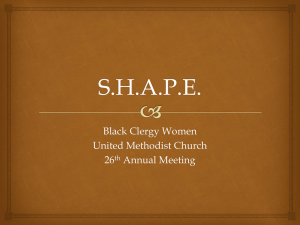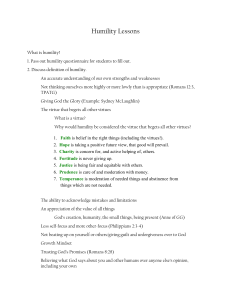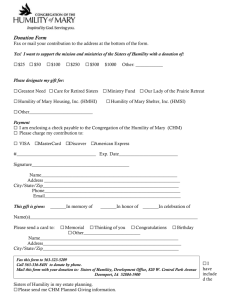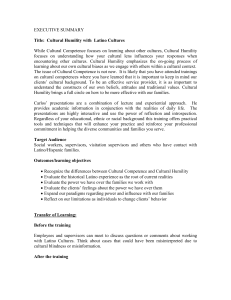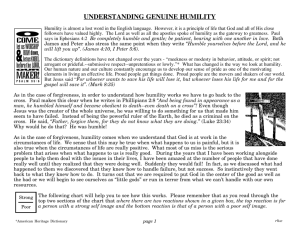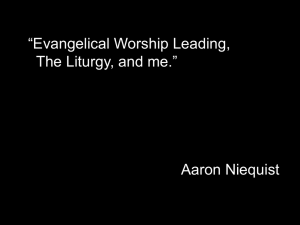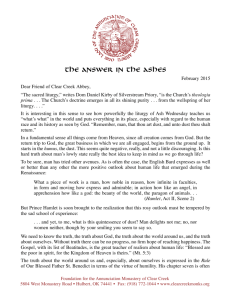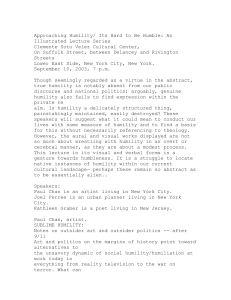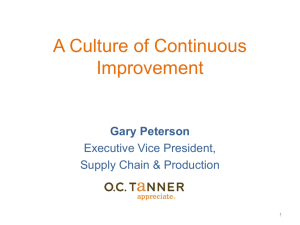Humility in Social Work Practice and Organisation
advertisement
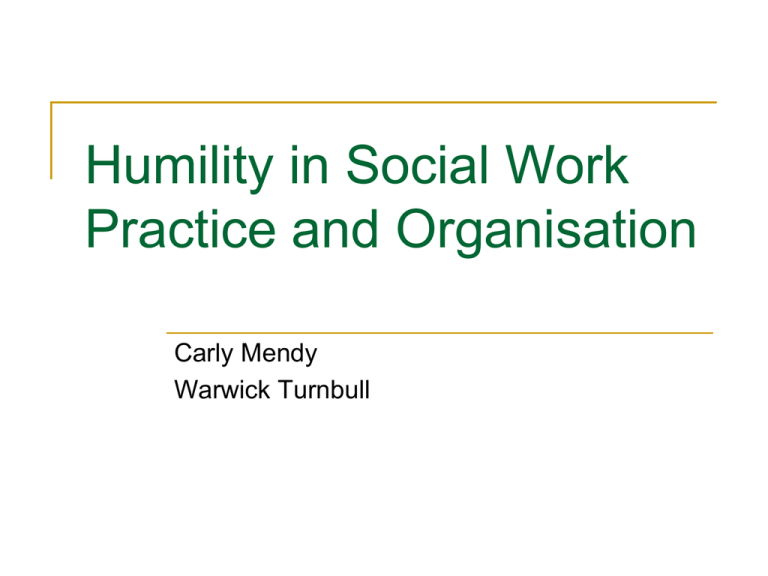
Humility in Social Work Practice and Organisation Carly Mendy Warwick Turnbull Introduction The perfume of sandalwood, rosebay or jasmine cannot travel against the wind. But the fragrance of virtue travels to the end of the world. (The Dhammapada p331) How can virtue resist the current fragmentations of social work organisational policies? Introduction Virtue ethics affirms human wholeness in the face of those policies that make people into objects: surveillance prescribed social functioning documentation Setting the scene Faith (often minimised in social work) can motivate and sustain workers Humility is a derivative of faith, valuable in practice Humility Realising that we are all fallible provides: a sense of commonality acceptance of others modesty about ourselves cautiousness about our own opinions a welcoming of difference a critical approach to the political Humility requires: reinforcement anti-oppressive deliberation reciprocity Humility and Buddhism All life is inter-connected So Buddha Nature requires: non-harming reverence for life stewardship of the earth standing up for truth respecting intimate relationships cultivating wakefulness Humility and Christianity ‘He has raised high the lowly.’ ‘Blessed are the poor in spirit…the gentle…the merciful…the peacemakers…the persecuted.’ Social work involves ‘empowerment and liberation of people’. Virtuous character enables the fulfilment of life’s purpose. Mindfulness intention attention attitude the present moment potential reduction of worker turnover and burn out Humility and deliberation Inclusive deliberation to enhance human capability Deliberation to involve emotion and narrative Evident in person-centred work, community work, teams Care not a commodity but serving persons People’s needs emerging from their narratives Cathartic outcomes Service users as experts On-going learning for workers Conclusion Humility as a remedy for fragmentation Inspired for some by faith or politics or logic Like social work, humility ‘promotes social change, problem solving in human relationships and the empowerment and liberation of people to enhance wellbeing’ (IFSW)
